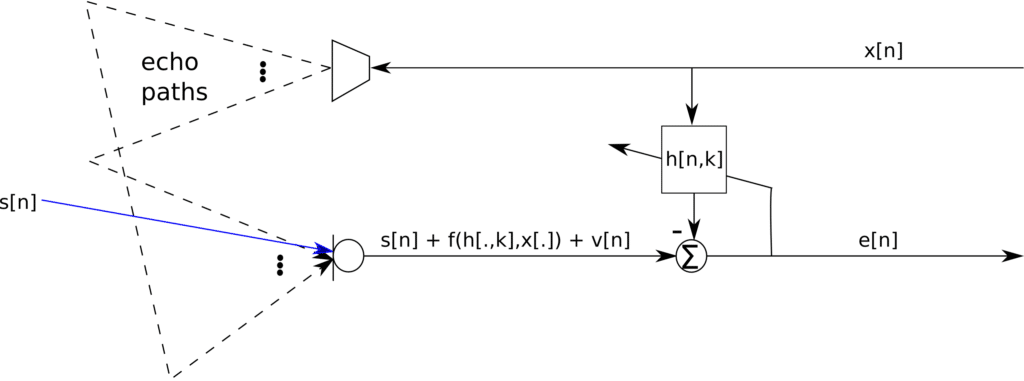An acoustic echo signal (AES) is a time delayed version of a signal which in general is undesired. The presence of AES can degrade the quality of a signal significantly hence the vast interest in acoustic echo cancellation (AEC) algorithms that reduce significantly AES presence in transmitted speech.
Consider the systems depicted in Figure 1 below:
Figure 1: Single line AEC architecture
The problem then is to correctly find the filter that will estimate correctly with minimum error
. The presence of the signal $s[n]$ may cause the adaptive system to cancel out the speech signal, thus leading to most AECs updating the filter coefficients only when there is no speech detected. Now consider a received signal
. The presence of the signal $s[n]$ may cause the adaptive system to cancel out the speech signal, thus leading to most AECs updating the filter coefficients only when there is no speech detected. Now consider a received signal
where is additive noise. Also consider that
is known. We want to estimate
such that
is minimized, where
Define the cost function , where
, and consider the noise signal being i.i.d. Gaussian. Then the gradient of the cost function for a frame of length N in the noise free case can be given as
The gradient descent algorithm to estimate the filter coefficients will thus be as follows:
VOCAL Technologies offers custom designed solutions for beamforming with a robust voice activity detector, acoustic echo cancellation and noise suppression. Our custom implementations of such systems are meant to deliver optimum performance for your specific beamforming task. Contact us today to discuss your solution!
